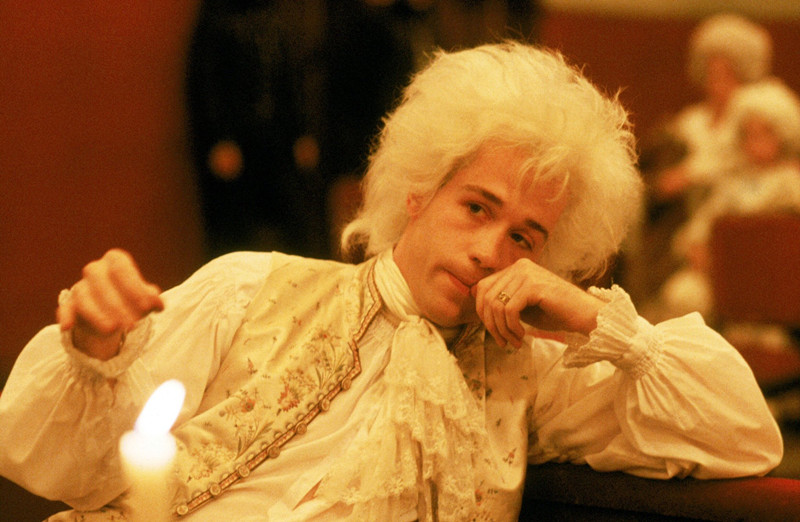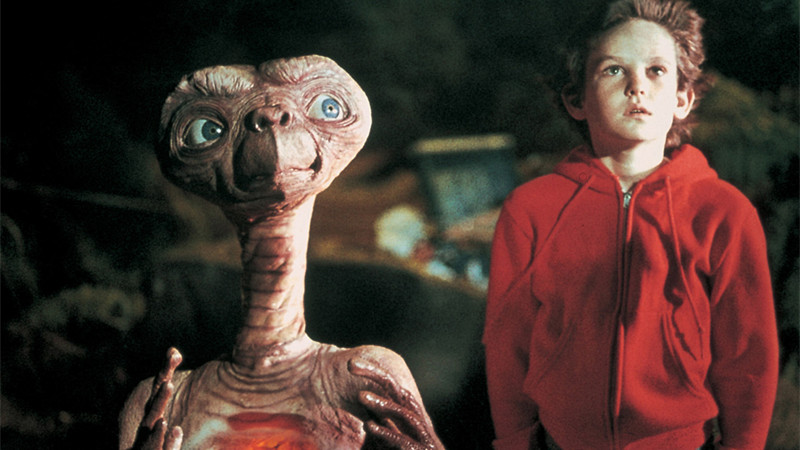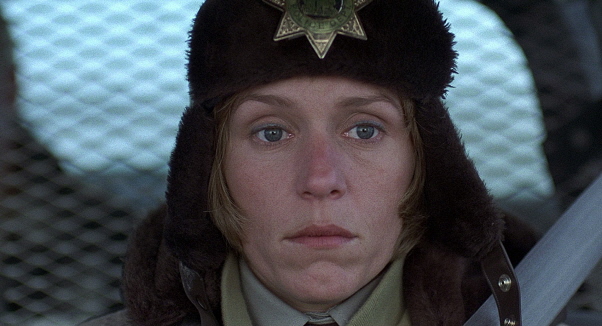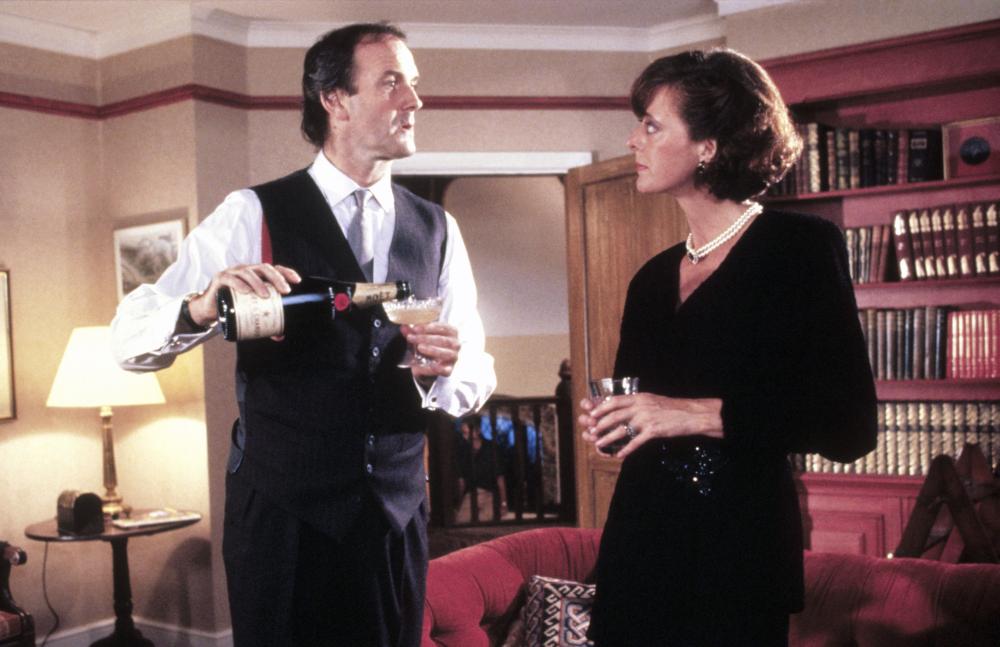
This list can technically go forever. There are so many films that can be analyzed and reanalyzed. Mainstream films usually just please common film goers in just the right way. You then get academic dorks like me that read into things too deeply (or so we are told). Well, despite the fact that we can apply this to any film, I do firmly believe that there are at least a handful of works that may have even more than you would initially think.
Maybe these examples will be basic knowledge to you, the reader (especially if you particularly love these works), but I believe there is a lot to unpack with these well known works. Here are ten famous movies that more profound than you think.
Be careful of spoilers for each of these films.
1. Amadeus

Who doesn’t love this semi-biopic about Mozart? How can it be deeper than we initially thought? We have Antonio Salieri witling down his direct competition and trying to supersede him in the echelon of great composers.
This is a fictitious take on real events, but it works for a very special reason. This is obviously a statement on hierarchy within art. What may not leap off the screen too heavily, is the film’s depiction of cinema within the same confinements.
Director Miloš Forman was solid at connecting meta themes to his works (particularly the then-current thoughts on mental health being combatted in One Flew Over the Cuckoo’s Nest). With Amadeus, there is the dependency an artist has to achieve greatness once more. Cuckoo’s Nest catapulted many careers, including Forman’s.
The dark shadow of the studio system overbearing the artist can heavily be felt here. Mozart’s trials and tribulations directly relate to Forman’s (particularily the ending, where exhaustion from demands is the deal breaker here) There’s a reason why this nonfactual take on Mozart’s life was important to Forman. Maybe it was that.
2. E.T. the Extra-Terrestrial

Of course something additional can be found in Steven Spielberg’s family sci-fi opus. There has to be something, because the legacy of this film can be felt many years later. There is an obvious family theme there, since Elliott’s family is struggling after his father left. E.T. comes into the picture, and everything changes.
One thing sticks out in particular. E.T. is able to link to Elliott telepathically; whatever E.T. can feel transfers directly to Elliott (and vice versa). When E.T. gets sick, Elliott gets sick along with him. A particularly striking moment is when both beings are on their respective death beds, and Elliott is using the rest of his energy to try and save his alien friend.
Considering the family dynamic, perhaps this is Elliott figuring out the devotion his mother delivers to him and his siblings, especially during this time of turmoil. A caring parent is willing to give away everything of their own so their children can survive. Maybe this is Elliott’s way of understanding, and a clever way for Spielberg to translate this sacrifice to viewers.
3. Fargo

This quirky film has won the hearts of millions of people (enough to become a major pop culture staple). It was obvious that this film was smart with the Coen Brothers’ ability to drill certain cat-and-mouse mechanics into your brain.
We love seeing Marge close in on a chess game that was previously twelve moves ahead. What we also have here, is a clashing of morals that might stem further than you first imagined. We get that Jerry is a liar, and Marge is hell bent on honesty.
The film is called Fargo, despite not really taking place there for much of the film’s duration. This is because the escape of one’s comfort zone is an important element, here. Marge travels to somewhere she is unfamiliar with. So does Jerry. Every major player here makes their way to a distant place (or extent of morality, or the lack thereof).
It’s no secret that Jerry is a car salesman, who flees the scene using that very vehicle. Calling Marge’s pregnancy a symbol (the carrier of hope) is a stretch, because that was a real life occurrence that was worked into the script, but everything else checks out. Fargo is all about borders being crossed, and barriers being broken.
4. A Fish Called Wanda

This hilarious romantic caper is iconic for its wit and absurdities. The title is a bit of a weird one at first glance: what does Ken’s aquarium have to do with the majority of the story (outside of the hysterical climax)? Well, much of the goofball moments directly relate to the characters.
When Otto gets squashed in literal feces, that’s a clear metaphor for his entire life having been based on nothing but crap (broken promises, lies, dirty work, selfishness). Otto eating up Ken’s fish collection also represents the one fish that got away (Wanda, obviously): a fixation on all of the wrong people, when the cleverest criminal did away with everyone else.
Ken accidentally murdering all of the dogs is also a clear sign of his unwillingness to continuously destroy true loyalty (and push the right people away). There is a lot of silliness here, but almost all of it is profound (it’s no surprise the film was nominated for Best Original Screenplay at the Academy Awards).
5. Happy-Go-Lucky

What’s the point of seeing Poppy going about her day-to-day life (and her head-butting with the new driving instructor in her life)? With that in mind, why does it even work so well? The blatant components here are Poppy’s contrasting ways with Scott (fun and free, versus stern and stuck).
I do think there is something a little more at play here, though. Much of the film is about Poppy, but it’s also about Poppy’s response to what is going on around her. Her bike gets stolen, so she decides it’s about time she starts to drive. She parties, yet she is there for her elementary school students the next day.
As much as the film is about Poppy being given a tough time with Scott and his impatience, it is also about the ebbs and flows of life. When does one go with the flow, and when do you intervene? Poppy stepping in during a bullying scenario happening in her class is an example of this. How much does Scott allow, instead of trying to control every single situation? Is it worth it? It’s ironic that he is a driving instructor, because he is stuck in neutral with his own life.